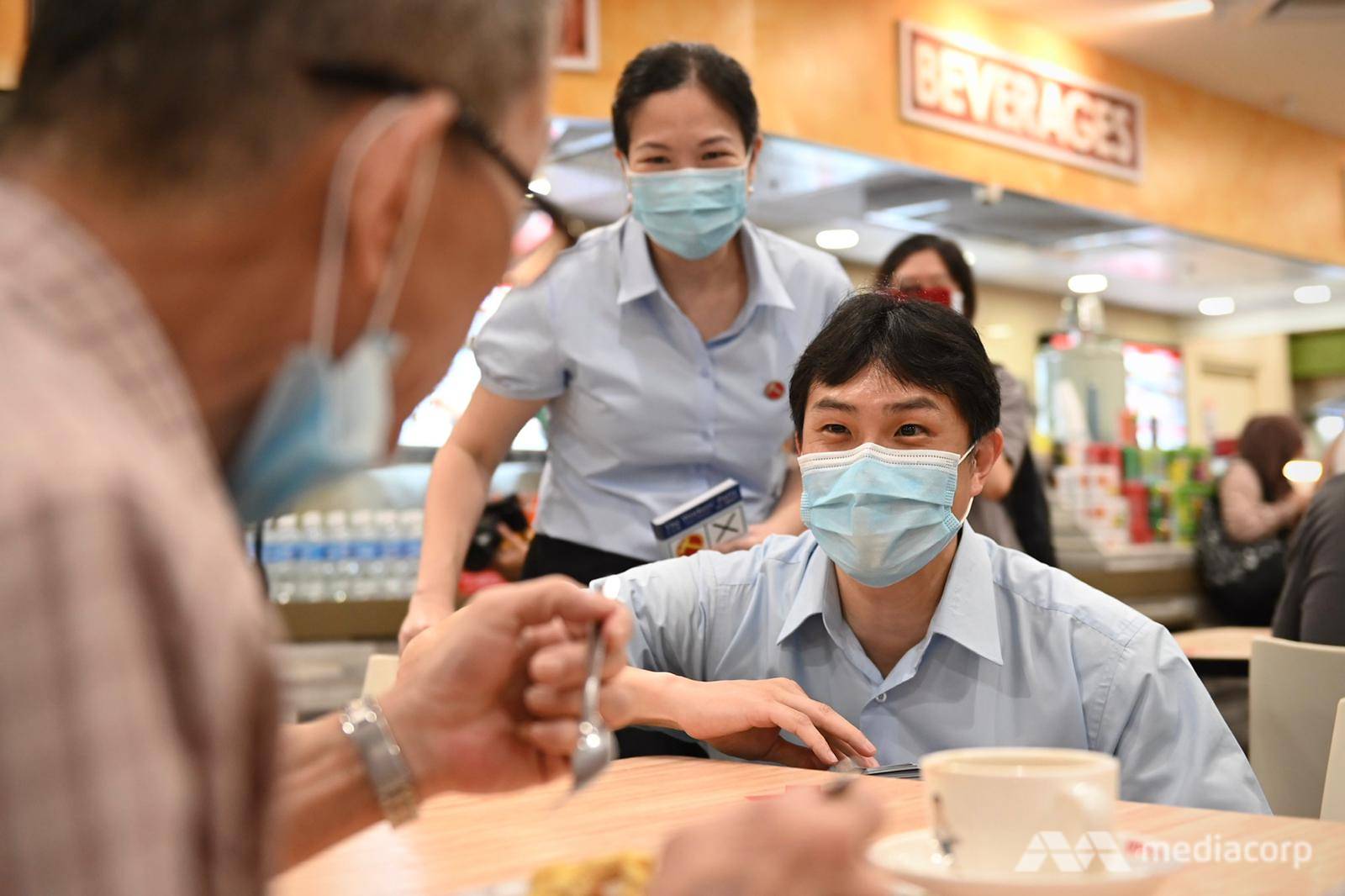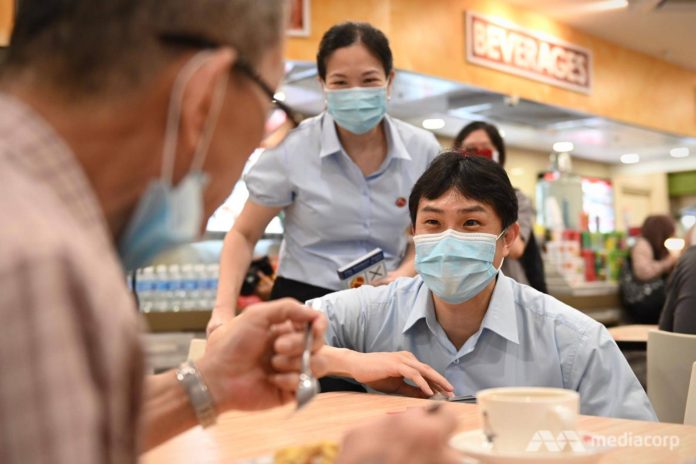SINGAPORE: In Singapore’s 2020 General Election (GE), while voters returned the People’s Action Party (PAP) candidates in 83 out of 93 seats in Parliament, it is the opposition Workers’ Party (WP) that stole the show.
Going into the election in the midst of the COVID-19 pandemic, WP held out the spectre of a PAP “clean sweep” unless voters could beat the instinctive “flight to safety” of choosing a tried and tested team. Instead, WP reminded them of the reasons why “balance” in voices and power was needed in Parliament.
The surprise was that WP was able to extend its influence from six seats to 10 by wresting a second group representation constituency (GRC) – Sengkang – in addition to WP holding Aljunied GRC and the single seat of Hougang where it was the incumbent party.
The popular vote share for WP where it contested swung by 10.7 percentage points from its GE2015 result to reach a creditable 50.5 per cent in the seats it contested.
READ: GE2020: Opposition vote swing shows people are looking beyond bread and butter issues, analysts say
READ: Commentary: The battle as Singapore heads into General Election campaigning post Nomination Day
Recognising this development, Prime Minister Lee Hsien Loong announced that WP secretary-general Pritam Singh would be invited to take up a newly created post in Singapore – the Leader of the Opposition – which in a different Westminster two-party system assumes he would head a shadow government.
Since that may be too great an ambition for WP at the moment, the post more plausibly allows Mr Singh to play the diplomatic role of meeting visiting foreign dignitaries who wish to recognise the political opposition and understand more comprehensively how democracy works in Singapore, as is the practice in countries like the United Kingdom and Australia.
Support for that modest, seductively sensible approach of “balance” came at the expense of a PAP Sengkang team of four men that included three office-holders in favour of four young politicians featuring an even mix of genders – three professionals and one civic activist. They secured 52.13 per cent of the vote in a straight fight against the PAP.
The WP Sengkang team epitomises the way the party has refreshed its ranks in its transition between former secretary-general Low Thia Khiang and Mr Singh. Mr Low, in explaining his decision not to contest in GE2020 said he was gratified there were now younger members who could appeal to people like themselves.

The Workers’ Party (WP) candidates for Sengkang GRC, He Ting Ru and Jamus Lim, interacting with residents during a walkabout at Rivervale Plaza on Jul 7, 2020. (Photo: Marcus Mark Ramos)
ASKING HARD QUESTIONS
There were three other factors apart from demographics that might account for a revival of WP’s fortunes in GE2020. The first is it made good on its promise to provide an alternative voice in Parliament.
Post-GE2015, WP’s six duly-elected MPs, and three NCMPs not only engaged in robust debates with the PAP frontbench on policies but emphasised in this election’s party broadcasts they had voted against bills and constitutional amendments when they felt they had to.
Think of their November 2016 opposition to the changes to the elected presidency system and May 2019 opposition to the Prevention of Online Falsehoods and Manipulation Act.
These did not just provide public profile to the MPs but demonstrated how seriously they were prepared to “deny the PAP a blank cheque”, another key message of its campaign.
READ: GE2020: Envision a Singapore with both tangible achievements and intangible ideals, says WP’s Sylvia Lim
READ: GE2020: Votes for the Workers’ Party will count in 3 ways, says Pritam Singh
The WP also campaigned like other opposition candidates did, to deny the PAP a supermajority or 62 seats so that it would not be able to push through constitutional changes in the House.
This was an ambition that Mr Singh had set out at WP’s annual members’ forum in January 2019. He said it was a goal that would make “any government sensitive to the pulse of the people and their welfare, allowing any ruling party to govern without gridlock while promoting the political openness that so many of us yearn for in Singapore.”
In essence, they had set up a record of “asking tough questions of the government”, in Mr Singh’s words, to convince voters the WP could play such a role.
THE SOCIAL MEDIA FACTOR
Second, even if this had not been an election held in the midst of a pandemic where mass meetings were disallowed, greater mastery of social media would be critical for a successful campaign. In this regard, WP seemed to have its ducks in a row for impactful communication.
READ: Commentary: Why do humble backgrounds matter as candidates standing for Singapore’s General Election?
READ: ‘It’s crunch time’: Opposition parties react to GE2020 announcement, WP puts up video featuring Nicole Seah
The constraints to in-person mass meetings were more than overcome through its Hammer Show and Instagram stories. These were tailored to younger voters, who in past post-election surveys by the Institute of Policy Studies, was the segment more inclined to support the notion of political contestation, turn to the internet for election material and act as swing voters.
While other parties also had their online outreach, to win at the game, candidates have to be personable and authentic.
In its communications strategy, the Sengkang team was empowered to stamp its own mark to convey how they were “insiders” in the constituency. They said they were like their residents – people with young families. They discussed the amenities that residents wished for. This was not a cookie-cutter approach to engagement. They came across as relatable.
Even more critically, Mr Singh provided a masterclass in crisis communications when he was quick to allow the WP candidate in Sengkang, Raeesah Khan, to respond to a brewing controversy over her remarks about alleged unfair treatment of public authorities in two social media posts in 2018 and May this year.
Mr Singh acknowledged concerns head-on and said his party would deal with it after the election, a line that matched the PAP’s in the “trial by Internet” of the potential candidate it had to withdraw, Ivan Lim.
He also said his party did not expect its members to sanitise their past to be on its ticket. This message of “taking people as they come”, of not expecting perfection and backing up one’s candidate quickly, would have appealed to voters.
His composure and responsible leadership was noted online. On the other hand, the PAP may have suffered a backlash for what happened to Ms Khan even if it is unclear if it was directly linked to surfacing her posts.
GOOD LOCAL GOVERNANCE
Third, WP signalled it accepted that voters do have the right to expect good local governance from it.
In his Nomination Day speech, Mr Singh apologised for falling short in the past and promised to do better. The idea of restitution, of setting things right and humility, is again reinforced and a good motivator for support among ordinary citizens.
Importantly, against the backdrop of an appeal to the High Court ruling on the civil case brought against the Aljunied – Hougang Town Council (AHTC) team of leaders for the dereliction of their fiduciary duties, Mr Singh highlighted in a Constituency Political Broadcast on Jul 2 that AHTC’s financial statements had been given a clean and unqualified opinion in 2019 and the Ministry of National Development had also placed Aljunied GRC in a satisfactory green banding for corporate governance.
Pritam Singh from the Workers’ Party speaking during a Party Political Broadcast on Jul 2, 2020.
This would have set some voters’ minds at ease about supporting the team. The WP was able to hold Aljunied GRC with a 9 percentage point rise in support vis-à-vis its GE2015 score.
The outcome has been a positive one for Singapore. It signals elections here are not just contestable but provide balance, discipline and the need for accountability upon the dominant PAP and opposition parties in Parliament.
This is in an age of rage where publics in democracies around the world feel they lack effective channels to voice their dissent.
Some may argue the first-past-the-post-system does not do justice to the fact that 61.24 per cent support for the PAP translated to it taking 90 per cent of the seats in Parliament, but we can be assured that in GE2020, this vital function of parliamentary elections has taken Singapore into the green banding of democratic health.
BOOKMARK THIS: Our comprehensive coverage of GE2020 and its developments
Download our app or subscribe to our Telegram channel for the latest updates: https://cna.asia/telegram
Dr Gillian Koh is Deputy Director (Research) and Senior Research Fellow in the Governance and Economy Department at the Institute of Policy Studies, National University of Singapore.





